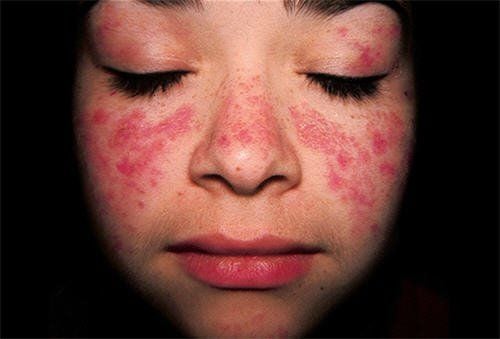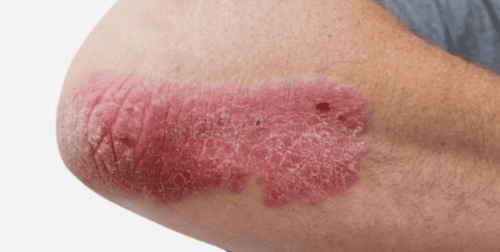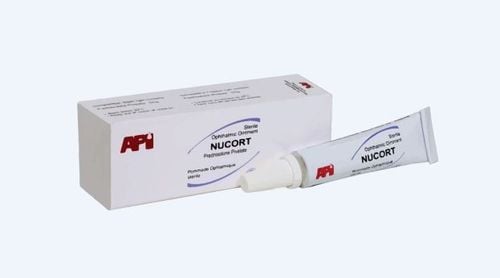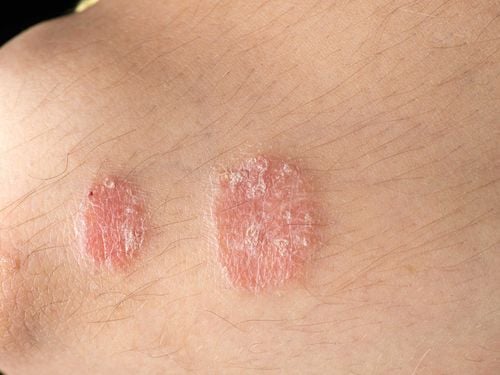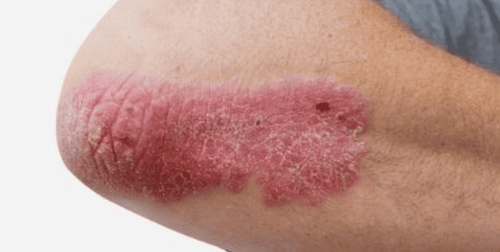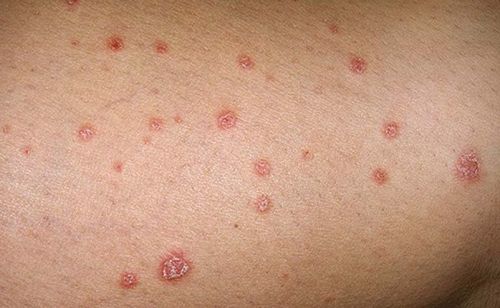This is an automatically translated article.
Psoriasis is a disease with many treatments. Treatment options for psoriasis depend on the extent of the disease, its symptoms, and the extent to which the skin is affected. The right choice will help you recover faster.
1. Ointments and creams
Treatment of mild psoriasis often uses topical medications. Mineral ointments or creams are used to apply to the skin after bathing or during bathing. In addition, you may also be prescribed stronger medications with ingredients that help reduce swelling and slow the growth of skin cells.
You should only cover the skin after applying the medicine when prescribed by your doctor. For some medications, sealing the skin can help increase the effectiveness of the treatment. However, some potent drugs can increase the appearance of side effects.
In case your doctor recommends it, you should do the following: Apply the medicine to the surface of the skin, cover it with plastic wrap, wear waterproof clothing, nylon fabric or cotton socks.
2. Light Therapy (Phototherapy)
Ultraviolet irradiation can help prevent the rapid growth of skin cells. However, sunbathing often does not improve but worsens the condition. The doctor will perform radiation for you with the right amount and time. Radiation treatment is usually painless. Irradiation is usually done with a laser or light box. You can also combine drug treatment with radiation therapy. Note, improper irradiation can increase the risk of skin cancer.
3. Laser therapy
With laser therapy, the doctor will shine light on the psoriasis area, the surrounding healthy skin will not be damaged or exposed to much UV rays compared to other radiation treatments. After 4-5 weeks of treatment, the plaques on the skin will gradually thin and the symptoms will also disappear after a while. In most cases, treatment is painless, with only some people experiencing mild redness and blistering.4. Oral medicine
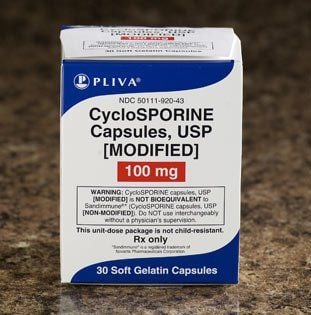
Thuốc cyclosporine là một trong các loại thuốc dùng để điều trị bệnh vẩy nến
Treatment of psoriasis with drugs is indicated when treatments that act directly on the skin are not effective. The medication is given as an oral pill or a quick-release tablet, which helps clear up the skin and prevent it from spreading if you have moderate to severe psoriasis. Commonly used medications include acitretin (Soriatane), apremilast (Otezla), cyclosporine (Apo-Cyclosporine, Gengraf, Neoral, Sandimmune), and methotrexate (Rheumatrex, Trexall).
5. Intravenous or rapid-release tablets
Moderate to severe psoriasis is usually treated with powerful medications. The drug acts on the immune system, helping to block factors that promote the development of the disease. Some medications can be given at home, while others require a visit to a hospital or clinic. Commonly used medications include adalimumab (Humira), adalimumab-adbm (xitezo), brodalumab (Siliq), etanercept (Enbrel), guselkumab (Tremfya), infliximab (Remicade), Remicade, ixekizumab (Taltz), secukinumab ( Cosentyx) and ustekinumab (Stelara).
Treating psoriasis with medication can help improve the condition after just a few weeks. You should consult your doctor if you are concerned about the medication. These drugs can cause serious side effects, such as liver and kidney problems, infections, and some cancers.
6. Treatment during pregnancy

Hãy hỏi bác sĩ về phương pháp điều trị an toàn cho cả mẹ và bé
If you are pregnant, nursing, or planning to have children, ask your doctor about safe treatments. Oral medications, biologics, and even some topical medications can cause birth defects or pass into breast milk. UV radiation therapy is safer for expectant mothers. If your doctor prescribes irradiation treatment, you should apply sunscreen to prevent melasma, especially for pregnant women.
7. Water therapy
Treat by adding Epsom salt, Dead Sea salt, oil or oatmeal to the bath. Soaking for 15 minutes can soothe itchy skin and remove scales. Use moisturizer afterwards. Swimming in salt water will help remove dead skin. You can choose to swim in the pool and wash off the chlorine after swimming.
8. Stress relief
Stress can trigger spreading. Therefore, you need to find ways to reduce stress. Talking to people with similar illnesses, with doctors, in the TalkPsoriasis.org community are all good options. In addition, going for a walk or exercising can also make your body feel better.
9. Complementary treatment

Phương pháp điều trị bổ sung như yoga, ngồi thiền có thể giúp cơ thể cảm thấy tốt hơn
Complementary and alternative therapy (CAM) can help the body feel better. Treatments include special diets, herbs, yoga, and meditation. There hasn't been much research on the effects of complementary therapies in improving psoriasis. You should consult your doctor before undertaking additional treatment. Yoga and meditation are likely safe, but herbs and supplements can reduce the effects of the medication.
At Vinmec International General Hospital, there is a package of examination and advice on treatment of atopic dermatitis for all customers of all ages. Customers are at risk such as allergies, being affected by ambient conditions such as weather, climate, and humidity. There are symptoms such as: There are vesicles concentrated in clusters, red papules raised above the surface of the skin or thick, lichenified, cracked, scaly patches of skin, concentrated in clusters, patches or scattered; Lesions are common in the cheeks, chin, forehead, elbow folds, and popliteals, and may be scattered throughout the body; At the lesion site, there is itchy skin, intense itching, especially at night, there may be bacterial infection at the itch...
When signing up for the package of examination and consultation for treatment of atopic dermatitis, customers will be examined and performed tests including:
Gynecological examination. Perform tests such as: quantification of IgE, fresh mycobacteria, specific IgE for respiratory - food allergens (Panel 1 Viet), test Rida Allergy Screen (panel 1).
Please dial HOTLINE for more information or register for an appointment HERE. Download MyVinmec app to make appointments faster and to manage your bookings easily.
Reference source: Webmd.com




